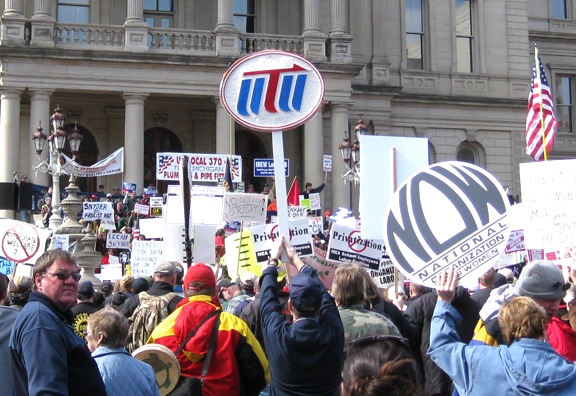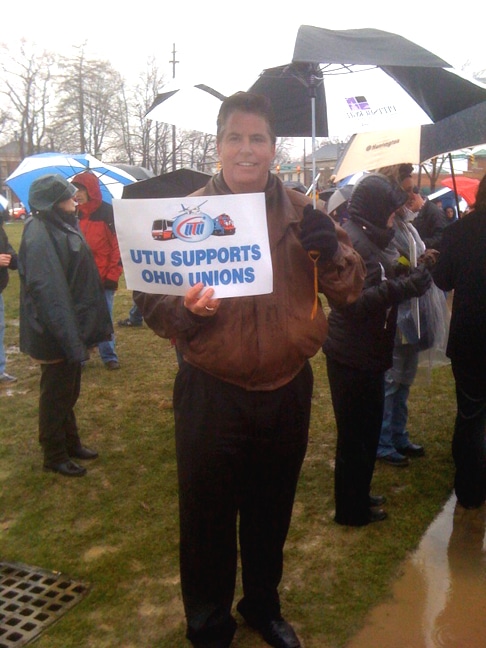WASHINGTON — Two commuter railroads — Los Angeles Metrolink and Chicago Metra – get it. They recognize that commuters aren’t hogs and logs on freight trains, and passenger and crew safety is paramount.
Unfortunately, 24 other commuter railroads don’t get it.
Under the umbrella of the American Public Transit Association (APTA), those other commuter railroads are pleading with Congress to delay for three years implementation of the life- and limb-saving technology offered by positive train control (PTC).
Instead, those other 24 commuter railroads are looking to spend the money on gussied up passenger stations, platforms and even new office buildings for executives.
Indeed, at a hearing of the House Rail Subcommittee March 17, APTA, in emphasizing everything except passenger and train-crew safety, asked that the deadline for implementation of PTC on commuter rail routes be delayed for three years — from Dec. 31, 2015, to Dec. 31, 2018.
By contrast, Los Angeles Metrolink and Chicago Metra are putting the highest priority on passenger and crew safety by moving forward to meet the 2015 deadline — established by the Rail Safety Improvement Act of 2008 — for installation of PTC.
Los Angeles Metrolink and Chicago Metra are the only two commuter railroads opposing the three-year delay sought by the other 24 in the PTC implementation date.
At Los Angeles Metrolink — a 512-mile system that is the second largest commuter railroad in size and fifth largest in ridership — the recently installed CEO, John Fenton, has made a commitment to put passenger safety first.
Metrolink has taken the lead in selecting vendors, setting equipment standards and implementing new training programs in preparation for meeting the 2015 PTC mandate.
“We are fully dedicated to meet or beat the PTC implementation deadline of 2015,” Fenton said in testimony submitted to the subcommittee. “We don’t think there is any time to waste given the unforgiving nature of the environment within which we operate.”
Fenton and Metrolink employees know this first hand.
Each wears a green wrist band with the words, “Never Again,” reminding them of the horrific accident in Chatsworth, Calif., Sept. 12, 2008, between a Union Pacific freight train and a Metrolink commuter train that killed 25 and injured 135. “We still walk in the shadow of that pain in mourning for all those touched by the tragedy,” Fenton said.
“A firm sense of resolve is clear,” he said. “PTC can be the technological edge that helps Metrolink achieve the safest operations possible when combined with a culture of positive safety, management leadership by example, sound operating rules and practices, a collaborate approach to stakeholder involvement and our crash-energy-management car fleet.”
While the other 24 commuter railroads complain of the cost of PTC and assert there is “no off-the-shelf technology” readily available, Los Angeles Metrolink has been at work to make PTC happen and to meet the 2015 installation deadline.
Within two months of passage of the 2008 congressional mandate for PTC installation, Metrolink assembled a PTC development team, which defined the scope, schedule and budget to create a glide path for PTC implementation by 2015. A vendor contract was awarded in October 2010.
If Los Angeles Metrolink and Chicago Metra have any complaints, it is with the other 24 commuter railroads fighting the 2015 installation mandate. By so doing, say safety experts, those 24 are reducing incentives for vendor research and development, limiting competition among vendors, and thereby further driving up the costs of implementation of which they already complain.
“We believe that PTC is perhaps the most important safety innovation in our lifetime,” Fenton said. “Our families, co-workers, friends and neighbors ride our trains every day. Their safety is our responsibility. It is our core value. PTC is too important in our mission of zero safety incidents.”
Also providing testimony was rail labor, supporting maintenance of the 2015 implementation date for PTC — for commuter railroads as well as freight railroads.
Emphasizing that many deaths — passenger and crew — could have been saved and will be saved by PTC, the rail labor organizations told the subcommittee, “There is no such thing as federal regulatory overreach when it comes to returning our members safely to their families.”
Said UTU National Legislative Director James Stem: “Implementation of PTC is a small price to pay for saving lives and limbs. PTC, long advocated by the National Transportation Safety Board, will become an integral part of the safety overlay protecting passengers, the public and train crews.”
PTC is collision avoidance technology that monitors and controls train movements remotely. It can prevent train-to-train collisions, prevent unauthorized train movement into a work zone, halt movement of a train through a switch left in the wrong position, and stop trains exceeding authorized speeds.
To view an animated depiction of how PTC works as a safety overlay system to improve railroad safety, click here.

